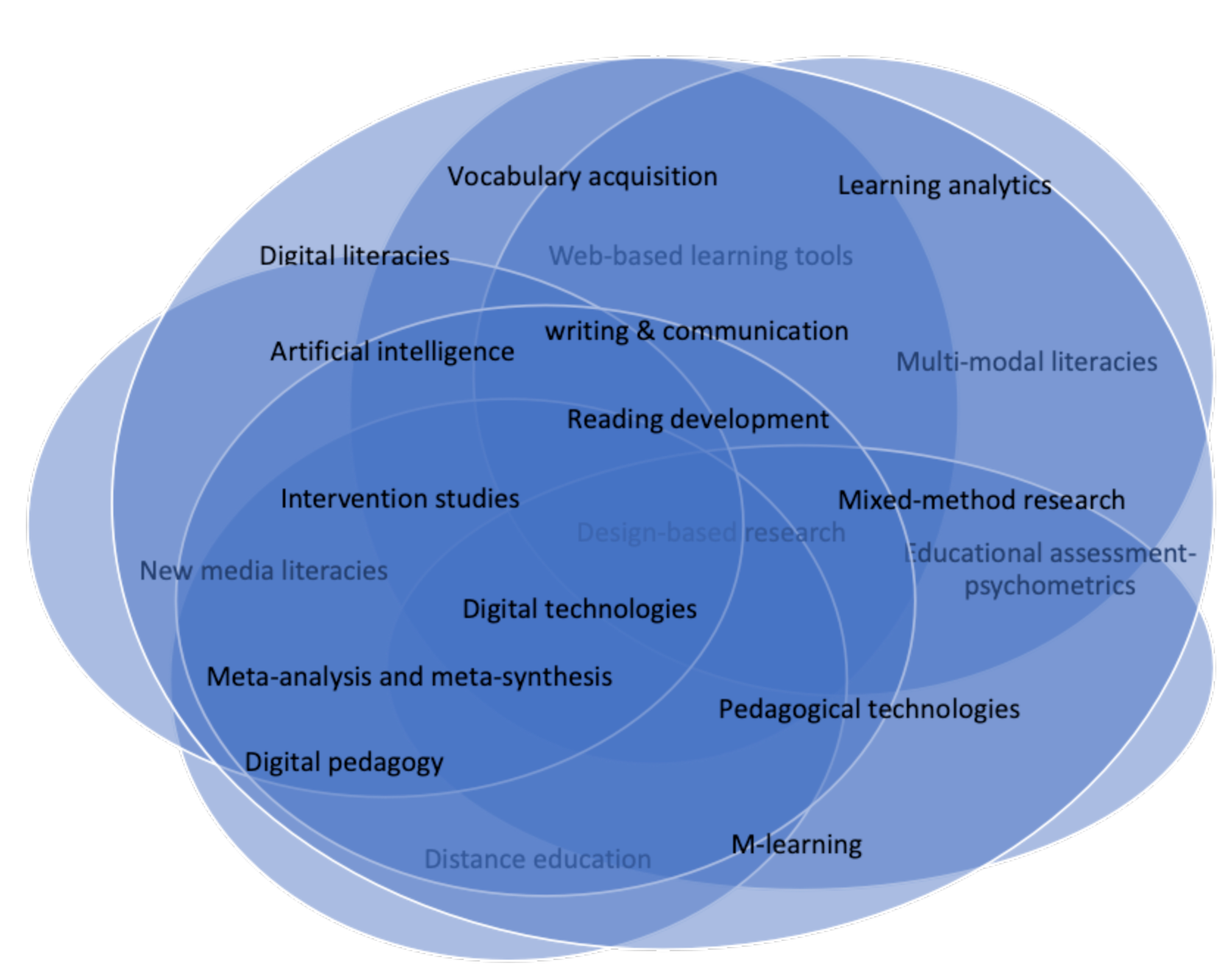
An interdisciplinary research approach © Jia Li 2023
Our research objectives include four major aspects:
1) To develop an in-depth and timely understanding of the multi-level interactions between digital technologies and the various stakeholders within a school community, including teachers, students, parents, and school administration.
These include systematic reviews meta-analysis to examine research evidence in the use and impact of digital technologies in education, and empirical studies of students’ competence in new media literacies and multiliteracies, and their interactions with the development of students’ language and literacy skills.
2) To transform teaching and learning pedagogy using digital innovation and disruption.
These include intervention studies developing evidence-based instructional designs using digital technologies to support the teaching and learning of i) language and literacy skills (e.g., vocabulary acquisition, reading and writing skill development) across subject content areas, and ii) complex skills required for advanced communication skills (e.g., critical thinking skills in reading and writing).
3) To develop and use innovative, rigorous assessment measures to evaluate the impact of digital technologies in education, the effects of teaching and learning multiliteracies, and language and literacy skills using digital technologies.
These include the development of qualitative and quantitative measures to capture the intervention effects (direct effects such as students’ vocabulary acquisition, reading and writing skills, competence in new media literacies and critical information literacies, and indirect effects such as achievements in other subject content areas), as well as the intervention impact (e.g., students’ learning engagement, perception, attitudes, and experience). We are also interested in further development of standardized assessment measures, e.g., digitalizing and adapting standardized reading tests that are relevant to specific student groups.
4) To address the urgent needs of underrepresented student populations (e.g., Indigenous students, racialized minority students, low-income, refugee and new immigrant students) and critical situations [e.g., 117 million students around the world were recently still out of school due to Covid-19, (UNESCO, September 16, 2021)] by leveraging digital technologies to develop sustainable and culturally relevant programs that are in tune with diverse students’ aspirations and lived experience.

